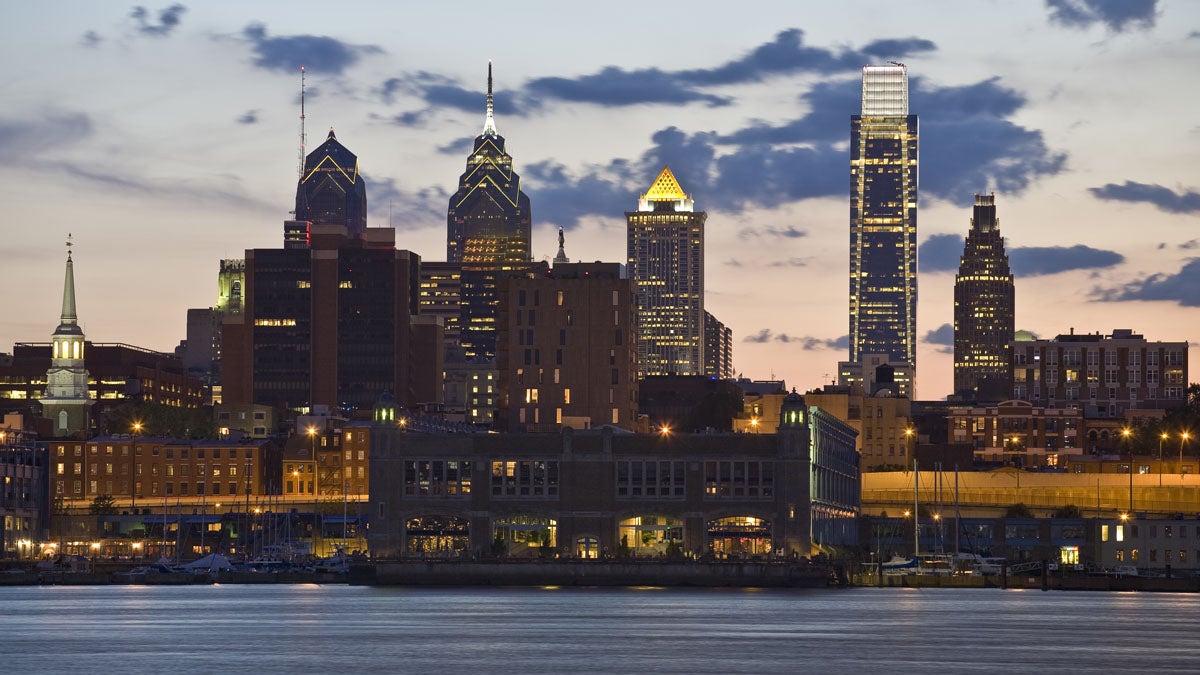Philadelphia energy hub debate centers on city’s gas works
Listen Photo via ShutterStock) " title="shutterstock_54997780" width="1" height="1"/>
Photo via ShutterStock) " title="shutterstock_54997780" width="1" height="1"/>
Business leaders pushing to turn the city into a regional energy hub see privatizing PGW as the best way to develop the utility's other assets – including two major liquefied natural gas storage units on the Delaware River.(Photo via ShutterStock)
Business leaders are calling on the Philadelphia City Council to reconsider spiking a deal to sell its city-owned utility, PGW. Meanwhile, some environmental groups are celebrating it as a small victory in their fight against plans for an energy-centric future for Philadelphia.
Philadelphia Gas Works is not just the company that provides the city’s residents with natural gas for their stoves and heaters.
Business leaders pushing to turn the city into a regional energy hub see privatizing PGW as the best way to develop the utility’s other assets – including two major liquefied natural gas (LNG) storage units on the Delaware River.
Phil Rinaldi, chairman of the Energy Action Team — a group convened by the Greater Philadelphia Chamber of Commerce — says those storage tanks and the refrigeration unit that cools the gas could generate more revenue as a distribution center for trucks and trains that run on LNG. But to get there, he says Mayor Michael Nutter and the City Council need to work together.
“The process that’s transpiring with PGW doesn’t look like political will,” said Rinaldi, who is also the CEO of the Philadelphia Energy Solutions refinery. “It looks like a highly siloed operation to start out with from the mayor’s office and then a highly siloed operation that happens afterwards from City Council.”
Nutter supports Rinaldi’s position that the best way to improve PGW is to sell it to a private corporation, which has access to capital the city does not have. But Council President Darrell Clarke argues privatization could cost city workers their jobs.
Another sticking point is PGW’s old, leaky pipes, which are a potential safety risk and contribute to greenhouse gas emissions. The proposed buyer, UIL Corporation, said it could replace those pipes faster than the city.
Environmental groups find themselves in a tricky spot siding with Clarke.
They oppose privatization because they see it as linked to a larger plan to industrialize Philadelphia as a fossil fuel energy hub. But that position seems to contradict their goal to fix PGW’s pipes and reduce emissions.
Iris Marie Bloom with Protecting our Waters dismisses the notion that she could be on the wrong side of this fight.
“It’s part of a larger plan to create a massive oil and gas hub in Philadelphia, and we’re opposed to that plan because we see Philadelphia as a green city with a strong commitment to energy efficiency [and] sustainability,” she said.
In the long run, it’s possible that neither the industrialists nor the environmentalists will get their wish.
Clarke said some of his colleagues are suggesting taking the middle road by forming a public-private partnership.
“We do not support the status quo,” he said. “We know that there has to be an opportunity to diversify and expand PGW’s current operations.”
For now, PGW’s future remains in limbo and will be the subject of hearings next week. Business and environmental interests both plan to make their case.
WHYY is your source for fact-based, in-depth journalism and information. As a nonprofit organization, we rely on financial support from readers like you. Please give today.

